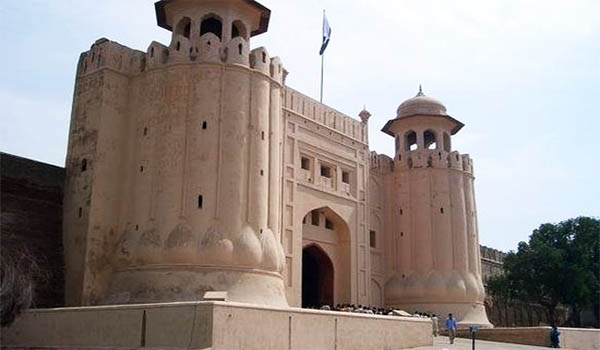
Jhang Maghiana, a city consisting of twin towns is the principle city of Jhang District in Sargodha Division of Punjab Province, Pakistan. It is situated just east of the Chenab River. Maghiana lies on the edge of the highlands overlooking the alluvial valley, while Jhang occupies the lowlands at its foot. They are connected by two roads and by the Grand Trunk Road (GT Road) with Peshawar and Lahore. According to the 1998 census of Pakistan it had a population of 387,418.
Maghiana was founded by Megha, ancestor of the Maghiana Sials, has become more important than Jhang, originally founded in ad 1462 and re-established in 1688 after a flood destroyed the original settlement. Maghiana is a wool collecting centre, with handloom industries. It is also famous for the manufacturing of soap, leather, locks, and brass work.
In Jhang is a government blanket manufacturing centre, and there are other textile industries as well. The twin towns, constituted in a one city municipality in 1867. The city has a hospital, public garden, and Government College affiliated with the University of the Punjab.
The area around Jhang and Maghiana is primarily agricultural. Irrigation by means of the Chenab Canal system is used to grow wheat and cotton. The Shorkot ruins, south of Jhang Maghiāna, may represent a city captured by Alexander the Great in 325 bc.
The Jhang Maghiana area was inhabited at the time of Alexander but the present city of Jhang is said to have been founded in the fifteenth century, and to have been destroyed by the river and re-founded during the reign of Aurangzeb. Under Mughal rule, the city flourished and was notable for commerce and trade. It was taken by Ranjit Singh in 1805.
During British Rule the towns of Jhang and Maghiana, lying two miles (3.2 km) apart, became a joint municipality, then known as Jhang-Maghiana municipality in 1867. The income during the ten years ending 1902-3 averaged Rs. 46,800 and the expenditure Rs. 44,200, in 1903-4 the income was Rs. 49,700 mainly derived from octroi.
The Government offices and establishments had been removed to the higher site, and commerce declined in Jhang, which was no longer considered a place of importance. Maghiana, however, had a considerable trade in grain, country cloth, manufactured leather, soap, locks and other brass-work. Maghiana also contained a civil hospital, whilst Jhang had a high school and a dispensary.
The population in 1901, according to the 1901 census of India, was 24,381 of whom 12,189 were Hindus and 11,684 were Muslims.
According to 1911 census, the following were the principal Muslim clans in Jhang District;
Awan (2,392), Aura (814), Chadhar (3,414), Dhudhi (600), Gilotar (1,497), Ganda (637), Gill (558), Gondal (900), Gujar (1,265), Haral (4,988), Hidan (914), Hanjra (1,176), Heer (584), Johiya (1,721), Juta (544), Kalsan (533), Kaloka (638), Kanwan (678), Kharal (1,792), Khichi (581), Khokhar (8,666), Kudhan (1,045), Lak (1,319), Lali (1,640), Lana (1,001), Mahra (597), Mahun (1,471), Marral (826), Maru (956), Nauls (2,136), Nonari (983), Noons (1,083), Rajoka (1,262), Sahmal (994), Satar (801), Sial (595) and, Sipra (3,092).
Aheer, Arain, Awan, Baloch, Bhangu, Bhatti, Bhatti, Bughlaira Khokhar, Chadhar, Chela, Dab, Dhudhi, Dogar, Fatyana, Ghenjera, Gilotar, Gujjar, Haral, Harya, Jabboana, Jatts, Jhandir, Johiya, Kathia, Khokhar, Kohja Jat, Lak, Lali, Mahra, Marral, Mohal, Nalere, Naswana, Naul, Nekokara, Nissowana, Pathan, Purnaya, Qazi, Qureshi, Qureshi, Qutab Shahi Khokhar, Rajput, Randhawa, Sangra, Sheikh, Sipra, Sipra, Syed, Tajraa, Vance.
The district comprises on four sub-divisions or Tehsils; Jhang, Athara Hazari, Shorkot and Ahmad Pur Sial
According to the 1998 census, Punjabi was the first language of 95% of the population in the Jhang and Shorkot Tehsils, while Urdu of 3.8%.
Sultan Bahoo - a Sufi saint, Dr.Abdus Salam, Nobel Prize winner in physics, Aleem Dar - cricket player, Muhammad Tahir-ul-Qadri - a Sufi Scholar, Politician, Founder of Minhaj-Ul-Quran International and Pakistan Awami Tehreek and Farooq Butt Kashmiri - A Technologist.
Jhang is the burial place of Heer and Ranjha, of Punjabi folklore.